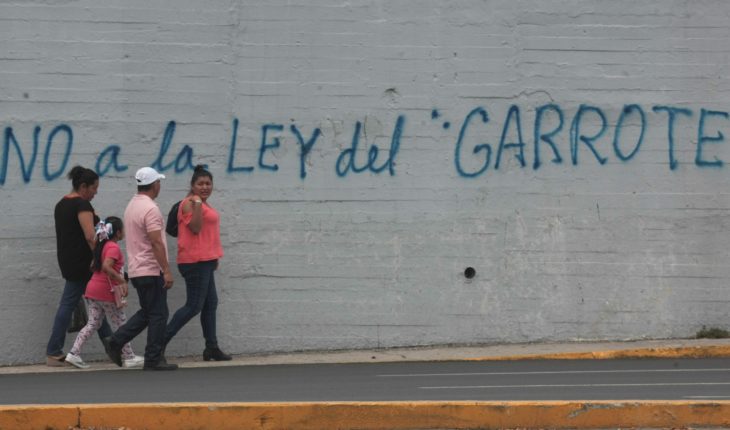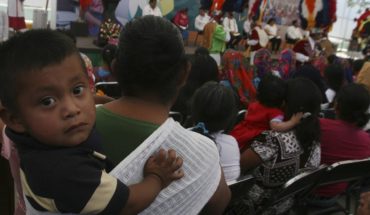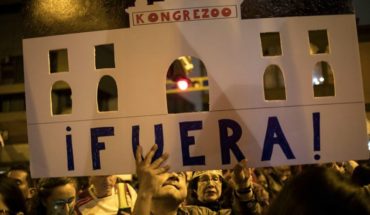The National United Nations expressed concern about the newly passed law reform in Tabasco state, known as the Garrote Act, which punishes anyone who prevents the execution of public works and toughens penalties for blockades in the streets.
In a letter (signed by the special rapporteurs on freedom of opinion, expression and human rights) the UN describes as “worrying” the amendments to Articles 196, 299 and 308 Bis and reminds the Tabasco government of international commitments acquired for the guarantee of human rights.
Read more: AMLO says Tabasco Garrote Law is to “put order” and prevent corruption
With the reforms, Article 196 Bis provides that anyone who lacks legal authority and “prevents or attempts to prevent by any means the execution of private works or works” will receive a prison term of six to thirteen years and a fine of one thousand to two thousand times on the daily value of the Unit of Measurement and Update.
These penalties shall also apply to those who “obstruct access to personnel or machinery” in the aforementioned workplaces. The same punishments were raised in Article 299.
Meanwhile, Section 308 now provides for a prison sentence of one to eight years and a fine of eighty to two hundred times the value of the Unit of Measurement and Updating obstructing, interrupting or hindering the public communication service through the obstruction of a local communication route.
You may be interested: #LeyGarrote: What does the opinion that seeks to increase penalties for blockages of works and streets in Tabasco say?
In view of this, the UN rapporteurs are particularly concerned about the short time of discussion and adoption of reforms, which prevented prior consultations with civil society as well as with national and international experts.
On the amendment to 308 Bis they raise the consequences that can occur in restricting freedom of expression and freedom of peaceful assembly.
“We understand that the main goal is to reduce corruption and criminality (…) however, we are concerned about the effect that such reform will have on the enjoyment of the rights to freedom of expression and the freedom of peaceful assembly,” they say.
The UN rapporteurs believe that other mechanisms should be explored “to balance interference with the right to freedom of expression and freedom of peaceful assembly”.
In particular, they say they are concerned “because the criminal intervention used is excessive in its consequences and in its limitation to the enjoyment of human rights (…) situation that raises concerns that the scope of the legislation can be very broad.”
The rapporteurs point out that even if restrictions and sanctions are tightened, they should allow the exercise of the right to freedom and peaceful assembly to the greatest extent possible, i.e. unnecessary or disproportionate constraints must be Avoided.
They add that “the use of the criminal sanction to regulate social protest in such a general way, and with sanctions that can reach up to 20 years of imprisonment is excessive.”
Read more: Advance stakes in commissions in Tabasco governor’s initiative that toughens penalties for marches and blockades
For these reasons, they remind the state government of its obligation to abide by article 2 of the International Covenant on Civil and Political Rights (ICCPR), which states that the State has a duty to adopt laws to enforce recognized rights , as well as Article 19 which protects the right to freedom of opinion and expression.
While Article 21 recognizes the right of peaceful assembly and Article 22 refers to the right of every person to associate with others.
Finally, they ask state authorities to provide information on the measures taken by the Tabasco government to ensure that all federal or state regulations and laws, adopted, respect the law and standards international human rights issues.
They also ask him to consider initiating an action of unconstitutionality before the Supreme Court of Justice of the Nation, and if it does not exist, explain why and how they propose to ensure that the legislation is not enforced in violation of the rights Human.
The reform to the articles mentioned here in the articles mentioned was approved by the Congress of Tabasco on July 29 and applied since August 1.
Governor Adán Augusto López defended the reform and assured that the right of demonstration and free expression will be guaranteed, and instead seeks to combat the extortion of trade union groups, or pseudo-unions, that prevent free transit or block works to obtain a benefit of its own.
For his part, President Andrés Manuel López Obrador said that the so-called Garrote Law is to bring order. “I think it was being abused, there was extortion, corruption and it was necessary to bring order. I think that was the main one in this new legislation,” the representative said.
What we do in Animal Político requires professional journalists, teamwork, dialogue with readers and something very important: independence. You can help us keep going. Be part of the team.
Subscribe to Animal Politician, receive benefits and support free journalism.#YoSoyAnimal
translated from Spanish: UN says Tabasco Garrote Law violates freedom of expression
August 20, 2019 |





